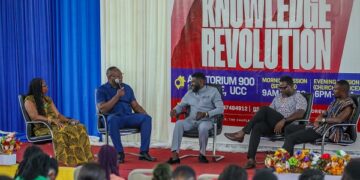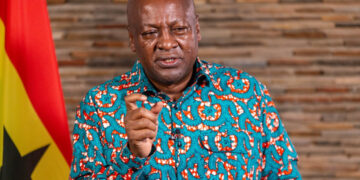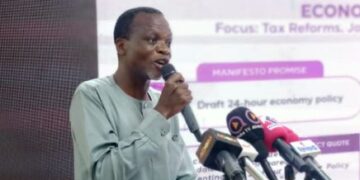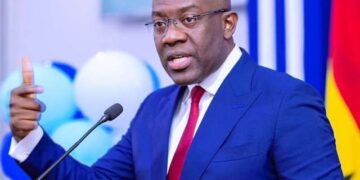The Department of Peace Studies at the University of Cape Coast has held a day’s stakeholder consultative workshop on its newly introduced programmes in the field of peace and conflict.
The newly introduced programmes include PhD in Peace and Development Studies, MA/Mphil and PhD in Politics, Peace and security Studies and a certificate in mediation.
The new programmes are expected to enhance critical and analytical thinking to impact research and policy for and assessment skills among others to minimize the politicisation of peace and security issues.

The Dean for the school for Development Studies Dr. Emmanuel Yaw Tenkorang in a remark said, the introduction of the new programmes have become necessary due to the various security challenges confronting the country.
He noted that, “Some time ago, it was like Universities have their programs, people simply come and do it. When you take it, you come and do it, and you go. As to whether, you fit or you don’t fit, that wasn’t so much of a concern. Now, we don’t have to train people and later on find out that, for some reason, they don’t fit the market they are supposed to work in. So this is part of that particular procedure to ensure that our students are appropriately trained for the job market”.
Prof Stephen Bugu Kendie, a former Director of the then Institute for Development Studies, Dr. Patric Osei Tuffour, head of the department of Peace Studies and Dr Kenneth Aikins a Senior Research Fellow with the department were lead discussant in giving the overview of the newly introduced programmes.
Read Also: Nana Addo still committed to fighting galamsey – Gideon Boako
General Secretary of the National Democratic Congress, Mr Johnson Asiedu Nketia who took part in the workshop called for the need to strengthen the security services in the country by positioning them above political, religious and ethnic lines.
According to him security services are mandated to ensure peace and stability for all and as such any form of polarisation is a threat to national security.
“It has happened many times where, you see that, security services and their bosses are predominantly either belonging to one religious set or belonging to an ethnic group and recruitment becomes secret. Nobody knows how recruitments are done. So it introduces indiscipline in the security service”, he reiterated.
Mr Asiedu Nketia also stressed the need for the University to strengthen its advocacy role through their academic programmes to discourage the monitisation of politics in the country.
According to Mr Asiedu-Nketia, the high level of corruption is as a result of this phenomenon.
“There have been studies in Ghana about how our democracy has developed and it is very clear that the cost of getting elected to any position in Ghana has increased to intolerable level and that is the root cause of corruption. So, if there is a way in which we can do more research in that field and see how we can clean our politics, it will help us to save this democracy” , he stressed.
The workshop was attended by a wide range of dignitaries drawn from academia, national security, the security forces and the national peace council.
Source: Kojo Dei/ATLFMNEWS




























